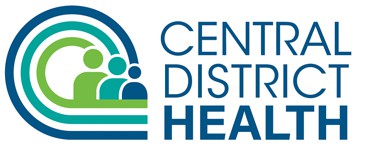On October 22, 2022 RSV season onset was declared in Idaho and activity continues increasing rapidly. Pediatric hospital inpatient bed capacity is limited and could continue to be strained throughout the respiratory disease season. The United States is currently experiencing high levels of respiratory virus activity, especially among children, across multiple jurisdictions. Increases in RSV, influenza viruses, SARS-CoV-2, and other respiratory viruses are straining the healthcare system nationwide.
Those at increased risk of hospitalization include children under 2 years, especially under 6 months; children with underlying medical issues; adults 65 years and older; those with chronic heart and lung disease; and those with weakened immune systems.
Consider prophylaxis to prevent hospitalization among high-risk groups
Consider prophylaxis for high-risk young infants and young children to help prevent hospitalization from severe RSV. Palivizumab is a monoclonal antibody recommended by the American Academy of Pediatrics (AAP) to be administered to high-risk infants and young children likely to benefit from immunoprophylaxis based on gestational age and certain underlying medical conditions. It is given in monthly intramuscular injections during the RSV season. For the latest palivizumab guidance, please consult the AAP policy statement. An accompanying AAP technical report provides additional context and rationale for the guidance. Interim guidance addressing the disruption in typical RSV seasonal patterns during the pandemic has also been provided: Updated Guidance: Use of Palivizumab Prophylaxis to Prevent Hospitalization from Severe Respiratory Syncytial Virus Infection During the 2022-2023 RSV Season (aap.org).
Consider testing and encourage effective transmission prevention measures
Consider testing patients presenting with acute respiratory illness who have a negative SARS-CoV-2 test for non-SARS-CoV-2 respiratory pathogens, such as RSV and influenza. Report suspected clusters and outbreaks of RSV, such as in institutions. Healthcare personnel, childcare providers, and staff of long-term care facilities should avoid reporting to work while ill, even if they test negative for SARS-CoV-2. Encourage parents and caregivers to keep young children with acute respiratory illnesses out of childcare, even if they have tested negative for SARS-CoV-2. Encourage all individuals to receive influenza and COVID-19 vaccines as soon as possible to protect themselves against those respiratory viruses and avoid associated complications. Clinicians can review surveillance data collected by public health officials and posted to Get Healthy Idaho to monitor RSV circulation trends in Idaho.
RSV is transmitted through respiratory droplets, direct contact, and by touching contaminated surfaces. Although there is no licensed vaccine for RSV, the Department of Health and Welfare and Central District Health encourage all individuals at increased risk of severe disease and their caregivers to take steps to prevent RSV infection this respiratory season. Some effective prevention measures people can take include:
- Wear a mask and physically distance yourself from others whenever you are in public
- Cover coughs and sneezes
- Wash hands frequently or use hand sanitizer
- Clean potentially contaminated surfaces
- Avoid sharing personal items like cups and utensils
- Avoid contact with those who are high risk of severe RSV, and
- Stay home and keep children home when sick.
For questions about RSV or to report clusters or outbreaks of RSV, contact the Idaho Epidemiology Section at 208-334-5939 or Central District Health at 208-327-8625.
For More Information:
AAP Policy Statement on the use of Palivizumab: https://publications.aap.org/pediatrics/article/134/2/415/33013/Updated-Guidance-for-Palivizumab-Prophylaxis-Among?autologincheck=redirected?nfToken=00000000-0000-0000-0000-000000000000
CDC healthcare provider recommendations for RSV: https://www.cdc.gov/rsv/clinical/index.html
For information on RSV in Idaho: https://healthandwelfare.idaho.gov/health-wellness/diseases-conditions/respiratory-syncytial-virus
For Idaho RSV data: https://www.gethealthy.dhw.idaho.gov/resp-synct.
For national RSV data from The National Respiratory and Enteric Virus Surveillance System (NREVSS): https://www.cdc.gov/surveillance/nrevss/rsv/natl-trend.html
# # # # #

